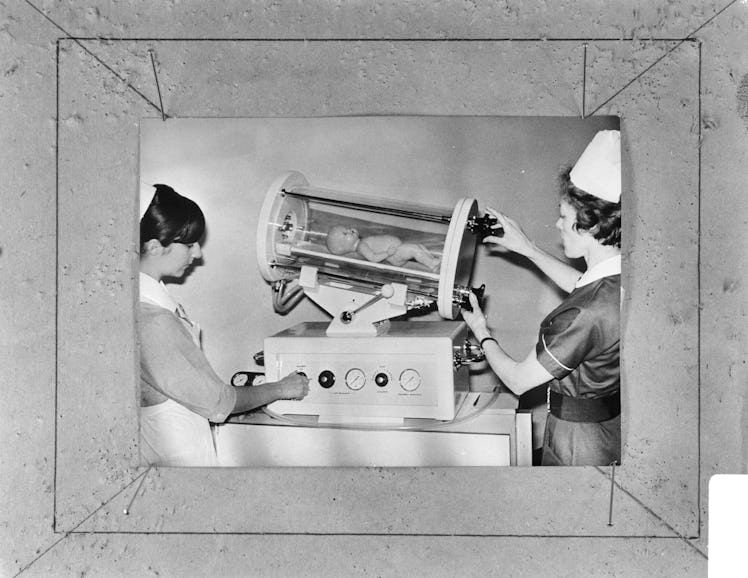On This Day In 1888, The First Baby In America Was Saved By An Infant Incubator
On this day, 134 years ago, Edith Eleanor McLean was the first baby placed inside an incubator in the United States.

It's hard to imagine what life would be like without some of the technology we have today. This is particularly true for families with kids with complex medical needs or new parents whose baby needed extra support after birth.
One major medical support — the specialized bed called an incubator — is one that is used so commonly it’s hard to imagine that there was a time before it existed. It's not unusual to see a newborn, particularly premature one, in an incubator when receiving care in the hospital.
On this day in 1888, the first baby was placed into an incubator, utilizing this incredible medical technology we still use today.
According to Healthline, an incubator is "designed to provide a safe, controlled space for infants to live while their vital organs develop." It's often used for babies born prematurely, or who have other medical conditions, and "provides an environment that can be adjusted to provide the ideal temperature as well as the perfect amount of oxygen, humidity, and light."
On this day, 134 years ago, Edith Eleanor McLean was the first baby placed inside an incubator in the United States, according to History. In 1888, Edith was born premature, weighing 1,106 grams (approx. 2.4 lbs) at birth.
Edith became the first American baby ever placed in an incubator for specialized care.
A doctor named Martin Couney invented the incubator and eventually brought it to the United States to treat babies in New York, where baby Edith was born. "Couney had run infant incubator exhibits, in which premature babies were displayed to the public, for more than three decades, most famously at Coney Island in New York City," Smithsonian explains.
Couney “had long been regarded by desperate parents as a savior, one who offered medical help to babies written off as 'weaklings' by mainstream medicine."
The Library of Congress even has a scan of a 1902 newspaper front page that ran a story on infant incubators — and it’s like a trip back in time.
There isn't much known about what happened to Edith as she got older, though according to one source named Dirk de Klein, her grandchild reached out to his blog when he wrote about the anniversary and said: “I know what happened to little Edith. She is my grandmother. Her name was changed to Myrtle Eleanor. She went on to give birth to 13 children. My mom was the 12th.”
What else we know is that the medical technology she was the first to benefit from in the United States has saved countless lives, and continues to help infants, newborns, and their parents every day worldwide.